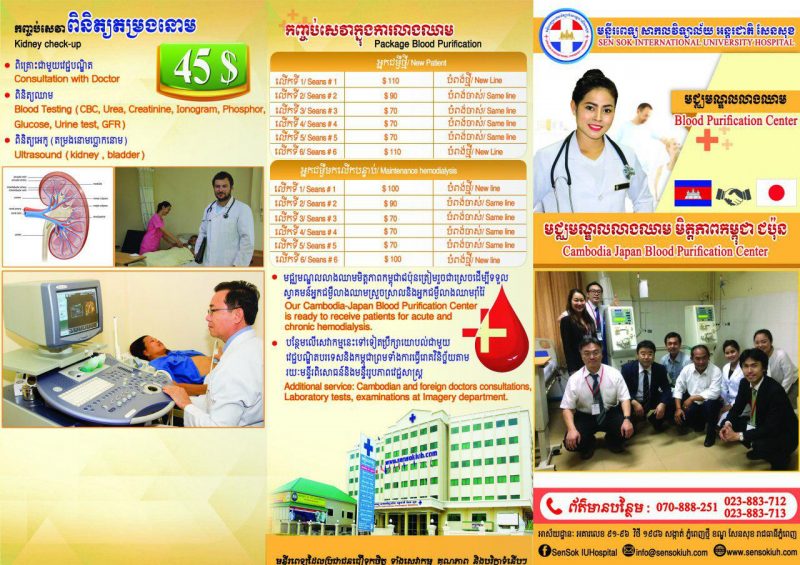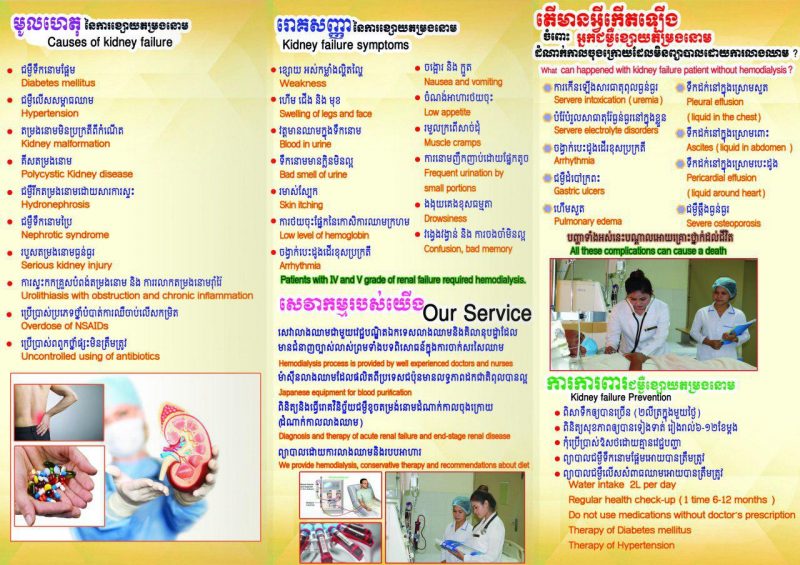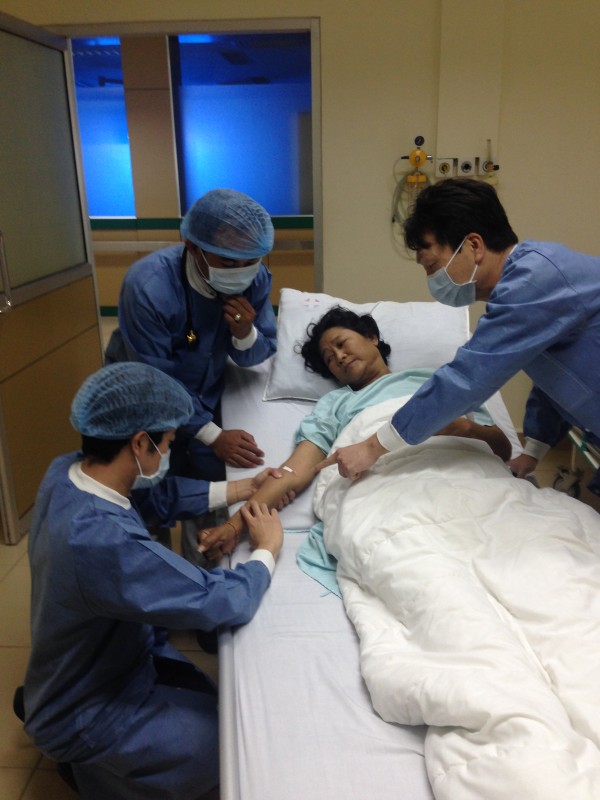Our Cambodia-Japan Blood Purification Center is ready to receive patients with kidney failure for acute and chronic hemodialysis.
Hemodialysis process is provided by well experienced specialists.
Our doctor: Dr.Yim SovanBophea

We have Japanese equipment for blood purification.
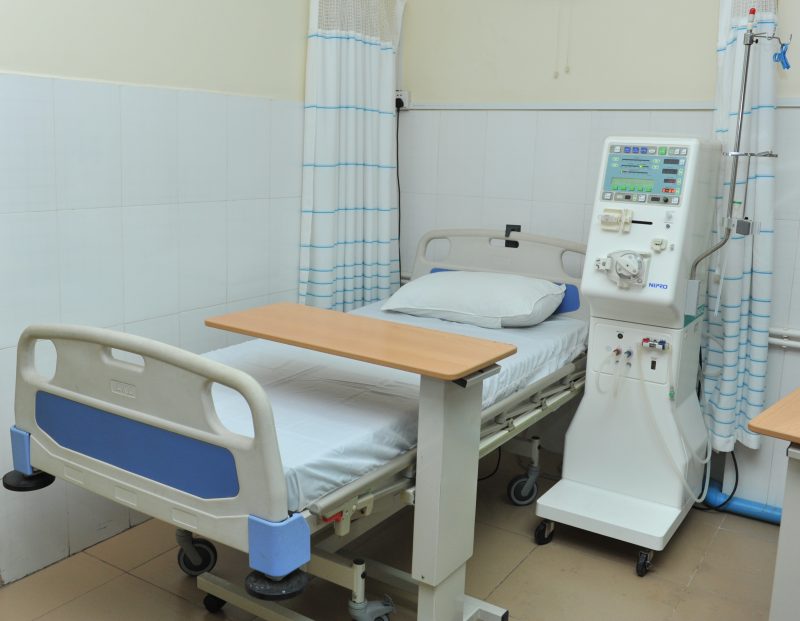
We provide:
1. diagnosis of kidney failure (physical examination, laboratory diagnosis, ultrasonography etc.),
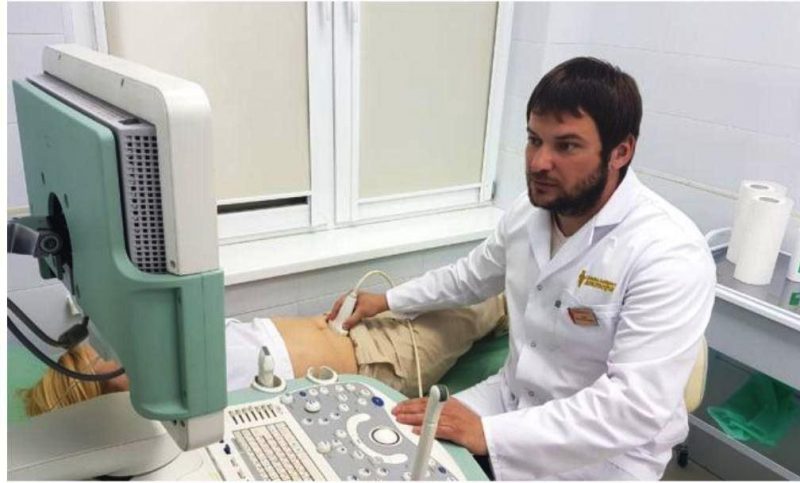
2. therapy of acute renal failure and end-stage renal disease (hemodialysis, conservative therapy),
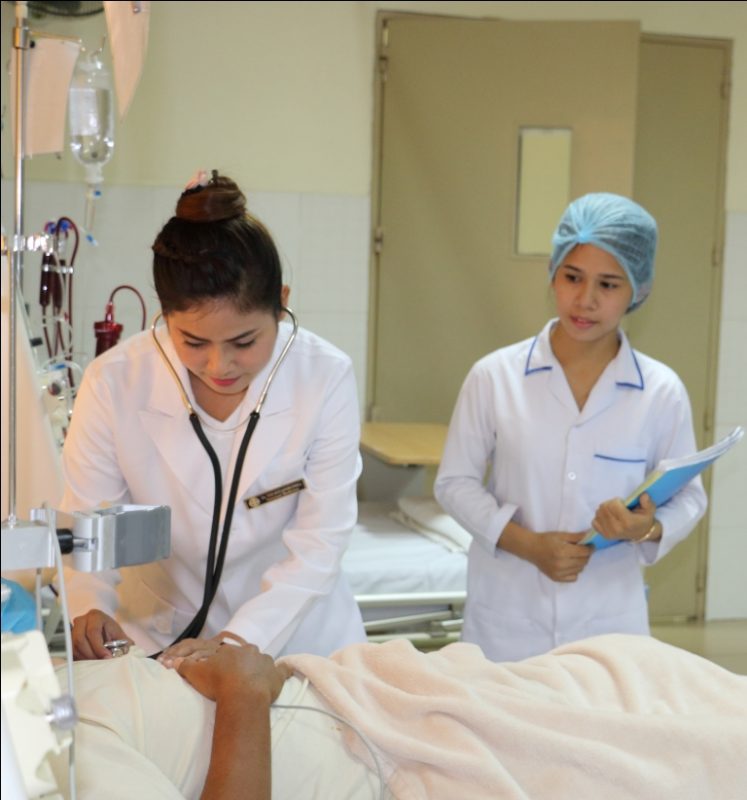
3. recommendations about diet.
Important information
Healthy kidneys are able to maintain the body’s internal equilibrium of water and essential minerals and remove daily metabolic load of fixed hydrogen ions from the body. They also produce erythropoietin and 1.25-dihydroxycholecalciferol (calcitriol).
But in the instance of renal failure, dialysis is the primary necessity in order to perform renal replacement therapy. Dialysis may be used for patients that experience acute renal failure or End Stage Chronic Kidney Disease.
It must be noted that dialysis is an imperfect treatment to replace kidney function since it does not correct the endocrine functions of the kidney. Dialysis treatments replace some of these functions through diffusion (waste removal) and ultra filtration (fluid removal).
Causes of kidney failure:
1) Diabetes mellitus
2) Hypertension
3) Kidney malformation
4) Polycystic kidney disease
5) Hydronephrosis
6) Nephrotic syndrome
7) Serious kidney injury
8) Urolithiasis with obstruction and chronic inflammation
9) Overdose of NSAIDs
10) Uncontrolled using of antibiotics
Kidney failure symptoms:
1) Weakness
2) Swelling of legs and face
3) Blood in urine
4) Bad smell of urine
5) Skin itching
6) Low level of hemoglobin
7) Arrhythmia
8) Nausea and vomiting
9) Low appetite
10) Muscle cramps
11) Frequent urination by small portions
12) Drowsiness
13) Confusion, bad memory
Patients with IV and V grade of renal failure required hemodialysis.
What can happen with kidney failure patient without hemodialysis?
1) Severe intoxication (uremia)
2) Severe electrolyte disorders
3) Arrhythmia
4) Gastric ulcers
5) Pulmonary edema
6) Pleural effusion (liquid in the chest)
7) Ascites (liquid in abdomen)
8) Pericardial effusion (liquid around heart)
9) Severe osteoporosis
Kidney failure prevention:
1) Water intake 2 L per day,
2) Regular health check-up (1 time 6-12 months),
3) Do not use medications without doctor’s prescription,
4) Therapy of Diabetes mellitus,
5) Therapy of Hypertension
